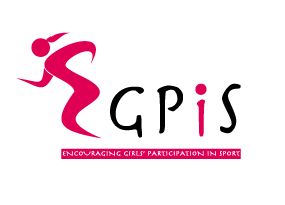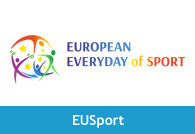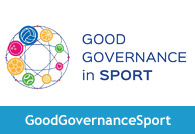NEWS

BSDA is partner in EGPiS2 project

06.12.2017
The project Encouraging girls’ participation in sports - 2, EGPiS2, was born in the wake of the success of the omonymous previous project, and aims to deal in-depth with some crucial aspects concerning the theme of girls’ and young women’s participation in sports, aspects that were brought to light from the first project.
The importance of gender equality thematic is, as we know, largely recognized by european institutions, so much that it’s considered one of the fundamental principles of the European Union, and it’s described as “basic principle of democracy and respect for humankind” (Communication from the Commission “Incorporating equal opportunities for women and men into all community policies and activities, 1996).
Coherently with this general target, gender equality has been considered as key topic for EU policy in the field of sports, as mentioned in the European Strategy for equality between women and men 2010-2015, which states: “promoting non-discriminatory gender roles in all areas of life such as education, career choices, employment and sport is ... an essential contribution towards gender equality.”
But Europe’s reality is, unfortunately, very far from this target if we take into account the small number of European nations that truly recognize gender equality in sports as a priority, and consequently a small number of nations put into practice actions and strategies aimed and equipped to fill in this gap.
When it comes to the participation of young girls and women, the problem is further worsened in the whole of Europe we infact can observe a certain difficulty about involvment in sports for both boys and girls in between 11 and 15 years of age, with a higher percentage of girls not involved in such activities.
The EGPiS project was aimed to find out what are the necessary factors that would help to develop sporting practices in between young women, with the specific targets of:
With this in mind, research has been developed, involving both schools and organizations that are involved with sports for girls and young women in a non-formal setting. And from that research, from the work concerning the realization of outputs and from the experimental phase, have emerged further targets to work upon, which is what EGPiS2 intends to focus on. Specifically:
a) some aspects concern the EGPIS methodology that was elaborated with the first project. Concerning this, it emerged the importance to work in-depth on elements tied to how the sports practice should have been structured, elements such as: the role of joint sports activities for girls and boys; the differentiation between ‘leisure’ time activities that are school-based and the ones that are not; how to retain participation of girls in sport.
b) At the level concerning ‘social factors’ that influence sporting practices for young women and girls, the emerged aspects concern:
d) A last aspect concerns the level of Policies, in terms of exploring useful practices to urge local institutions to come up with ways and programs for the development of sports opportunities for girls and on equal opportunities in sport.
The EGPiS2 project means, therefore, to explore these aspects and create the following outputs starting from them:
O1 - Research on Social Factors Encouraging Girls' Participation in Sports.
O2 - Encouraging Girls' Participation in Sports - Guidelines N. 2
The guidelines are a development of the ones created in the previous project, and will include:
Creation of user-friendly video tutorials aimed to the various components of the intended recipients: girls, families, workers, organizers, decision makers and local administrators.
O4 - Encouraging Girls' Participation in Sports - Training Course
The project means, in this way, to find answers when it comes to promoting equal opportunities in sports, concerning the specific target of girls and young women.
At the same time, the projects wants to promote the well-being and social inclusion through sports, since it has at its core a conception and a practice of sport not as a necessarily professional activity, but as something aimed to everyone: well-being, socialization, intercultural dialogue and dialogue across generations are at its core.
The project address issues relevant to the participating organization. Particularly:
ENDAS is one of the most important organisations in Italy active in the field of social action and which is able to spread a sports culture where sport is seen as a playful and peaceful aggregation of individuals. Therefore, it intends to integrate all disadvantaged groups such as people with disabilities. The issue relate to how to reduce the abandonment of the sport in adolescent women is fully within the aims of the association.
The Access to Sports Project is targeted at people who face multiple levels of disadvantage. Within this scope, one of their objectives is to increase social inclusion by providing opportunities for participation in sports by males and females, people from minority ethnic backgrounds, people with disabilities and people who are economically disadvantaged.
Çatalca District Directorate of National Education (Turkey) regards sporting activities as important part of education, as it fosters personal and physical development. They focus their work on supporting disadvantaged groups and are therefore particularly interested in contributing to gender equality in sports in their area.
Mirandela Municipality (Portugal) has a division especially dedicated to sports in their area. One of their main aims is to promote the “sport for all” movement in order to grant equal access to sports for everyone; Mirandela, along with Hranice Development Agency, has been collaborating with schools and sport associations in their region and is aware of the low participation of girls in sporting activities. Their goal is to structurally develop the local sports-related infrastructure and to support sport initiatives, promoting grassroots sport, and a "culture of sport" among the community.
The Cyprus University of Technology aims at contributing to the progress and wellbeing of the society. As part of its academic activity, it promotes public health, social inclusion and equality.
Furthermore, the partnership includes a Swedish Sports Federations: Värmlands Sport Federation has already been working in the field of gender equality and in addition, there is a national goal to reach a 50/50 distribution of women and men active in sports.
Bulgarian Sports Development Association is working since 2010 improving sport culture in Bulgaria. The issue of how to encourage the sport for girls and young women is very important for this organization, by one side because Bulgaria is one of EU Countries where fewer people practice sports, even among young people, both because it is a way of contributing to another crucial issue for this country, the gender equality.
Last, the Latvian Sports Federations Council, as federation collecting more then 120.000 people playing many sports. has a strong interrest in the inclusion of a category of participant, like the girls and young woman, risk of dropping the practice of sports.
At the same time, the project addresses very relavant issues pertaining to the several target groups:
Project is co-funded by Erasmus Plus Programme of the European Commission.
Coherently with this general target, gender equality has been considered as key topic for EU policy in the field of sports, as mentioned in the European Strategy for equality between women and men 2010-2015, which states: “promoting non-discriminatory gender roles in all areas of life such as education, career choices, employment and sport is ... an essential contribution towards gender equality.”
But Europe’s reality is, unfortunately, very far from this target if we take into account the small number of European nations that truly recognize gender equality in sports as a priority, and consequently a small number of nations put into practice actions and strategies aimed and equipped to fill in this gap.
When it comes to the participation of young girls and women, the problem is further worsened in the whole of Europe we infact can observe a certain difficulty about involvment in sports for both boys and girls in between 11 and 15 years of age, with a higher percentage of girls not involved in such activities.
The EGPiS project was aimed to find out what are the necessary factors that would help to develop sporting practices in between young women, with the specific targets of:
- developing and testing new methods based on the active participation of girls, non-competitive approaches, team spirit, creativity and fun;
- creating methods and educative paths in order to enhance active participation of girls in designing new sport dynamics together with the teachers and sport professionals, including all types of games, music based activities, sports combination, adaptation of rules, etc.
With this in mind, research has been developed, involving both schools and organizations that are involved with sports for girls and young women in a non-formal setting. And from that research, from the work concerning the realization of outputs and from the experimental phase, have emerged further targets to work upon, which is what EGPiS2 intends to focus on. Specifically:
a) some aspects concern the EGPIS methodology that was elaborated with the first project. Concerning this, it emerged the importance to work in-depth on elements tied to how the sports practice should have been structured, elements such as: the role of joint sports activities for girls and boys; the differentiation between ‘leisure’ time activities that are school-based and the ones that are not; how to retain participation of girls in sport.
b) At the level concerning ‘social factors’ that influence sporting practices for young women and girls, the emerged aspects concern:
- how to act at the level of Environmental and social factors like family, peer groups, schools, sport clubs and other groups girls belong to, in order to develop participation of girls and young women to sport activities;
- the necessity to intersect the issue of participation of girls in sports activities with the theme of intercultural dialogue, as a crucial aspect in a European Society that’s become more and more intercultural and that keeps on evolving in that direction.
d) A last aspect concerns the level of Policies, in terms of exploring useful practices to urge local institutions to come up with ways and programs for the development of sports opportunities for girls and on equal opportunities in sport.
The EGPiS2 project means, therefore, to explore these aspects and create the following outputs starting from them:
O1 - Research on Social Factors Encouraging Girls' Participation in Sports.
O2 - Encouraging Girls' Participation in Sports - Guidelines N. 2
The guidelines are a development of the ones created in the previous project, and will include:
- further deveolopments of EGPiS method;
- methods to influence environmental and social factors;
- how to work on the issue of participation of girls in sports activities with a particular attention to the theme of intercultural dialogue;
- useful practices to urge local institutions to create processes for the development of sports opportunities for girls and equal opportunities in sport.
Creation of user-friendly video tutorials aimed to the various components of the intended recipients: girls, families, workers, organizers, decision makers and local administrators.
O4 - Encouraging Girls' Participation in Sports - Training Course
The project means, in this way, to find answers when it comes to promoting equal opportunities in sports, concerning the specific target of girls and young women.
At the same time, the projects wants to promote the well-being and social inclusion through sports, since it has at its core a conception and a practice of sport not as a necessarily professional activity, but as something aimed to everyone: well-being, socialization, intercultural dialogue and dialogue across generations are at its core.
The project address issues relevant to the participating organization. Particularly:
ENDAS is one of the most important organisations in Italy active in the field of social action and which is able to spread a sports culture where sport is seen as a playful and peaceful aggregation of individuals. Therefore, it intends to integrate all disadvantaged groups such as people with disabilities. The issue relate to how to reduce the abandonment of the sport in adolescent women is fully within the aims of the association.
The Access to Sports Project is targeted at people who face multiple levels of disadvantage. Within this scope, one of their objectives is to increase social inclusion by providing opportunities for participation in sports by males and females, people from minority ethnic backgrounds, people with disabilities and people who are economically disadvantaged.
Çatalca District Directorate of National Education (Turkey) regards sporting activities as important part of education, as it fosters personal and physical development. They focus their work on supporting disadvantaged groups and are therefore particularly interested in contributing to gender equality in sports in their area.
Mirandela Municipality (Portugal) has a division especially dedicated to sports in their area. One of their main aims is to promote the “sport for all” movement in order to grant equal access to sports for everyone; Mirandela, along with Hranice Development Agency, has been collaborating with schools and sport associations in their region and is aware of the low participation of girls in sporting activities. Their goal is to structurally develop the local sports-related infrastructure and to support sport initiatives, promoting grassroots sport, and a "culture of sport" among the community.
The Cyprus University of Technology aims at contributing to the progress and wellbeing of the society. As part of its academic activity, it promotes public health, social inclusion and equality.
Furthermore, the partnership includes a Swedish Sports Federations: Värmlands Sport Federation has already been working in the field of gender equality and in addition, there is a national goal to reach a 50/50 distribution of women and men active in sports.
Bulgarian Sports Development Association is working since 2010 improving sport culture in Bulgaria. The issue of how to encourage the sport for girls and young women is very important for this organization, by one side because Bulgaria is one of EU Countries where fewer people practice sports, even among young people, both because it is a way of contributing to another crucial issue for this country, the gender equality.
Last, the Latvian Sports Federations Council, as federation collecting more then 120.000 people playing many sports. has a strong interrest in the inclusion of a category of participant, like the girls and young woman, risk of dropping the practice of sports.
At the same time, the project addresses very relavant issues pertaining to the several target groups:
- A first target group is, of course, 12 to 16 year-old girls; the various methodologies that have been created and structured aim to encourage these girls to participate in sports, or to continue exercising;
- A second target is represented by those ‘social factors’, such as famiies, teachers and school principals, along with sports clubs, which have an important role in facilitating girls’ participation in sports; this specific target isn’t usually much aware of the problematics that we are dealing with, nor of which is the most correct course of action to follow in order to address it.
- A third target is represented by the politicians and local administrators in charge of the educational and sports-related politics; the aim, concerning this target, is to make them aware of the aforementioned problematics that the project addresses and of the necessary strategies to deal with it successfully
Project is co-funded by Erasmus Plus Programme of the European Commission.

 Български
Български












































